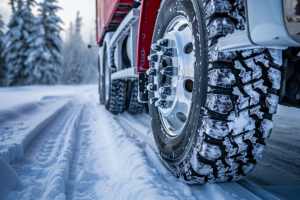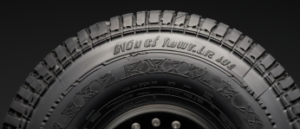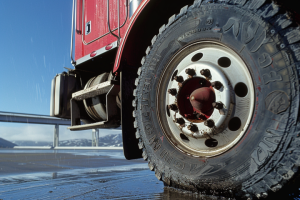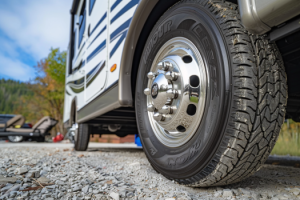Last Updated on April 22, 2024
Unraveling Truck Touring: Understanding Its Significance in Trucking
The trucking industry has always been essential to the logistics and transportation sector. But as time passed, it changed from being just a means of moving freight to taking on a broader role that today includes “touring.” This piece explores the development of truck driving as a travelling career and the vital part tires play in making this unique experience even better.
The Evolution of Trucking as a Touring Profession
Initially, trucks’ primary purpose was to move cargo over long distances. In the early days of trucking, the primary goal was to get freight from point A to point B efficiently and dependably. However, truck drivers‘ responsibilities and expectations have expanded with the sector.
Trucking has evolved into a new industry in recent years: touring. This type of trucking is more about travel than cargo delivery. Truck tours range from lengthy international trips to breathtaking excursions along less-traveled routes. Driving has become a way of life for many drivers because it offers a unique fusion of responsibility, independence, and adventure.
Key factors contributing to this change include technological advancements in truck design and road infrastructure. These improvements have made long-distance travel more achievable and comfortable for truckers. Furthermore, the trucking industry’s standing as a touring vocation has been strengthened by the increasing recognition of the trucking lifestyle in the media and popular culture.
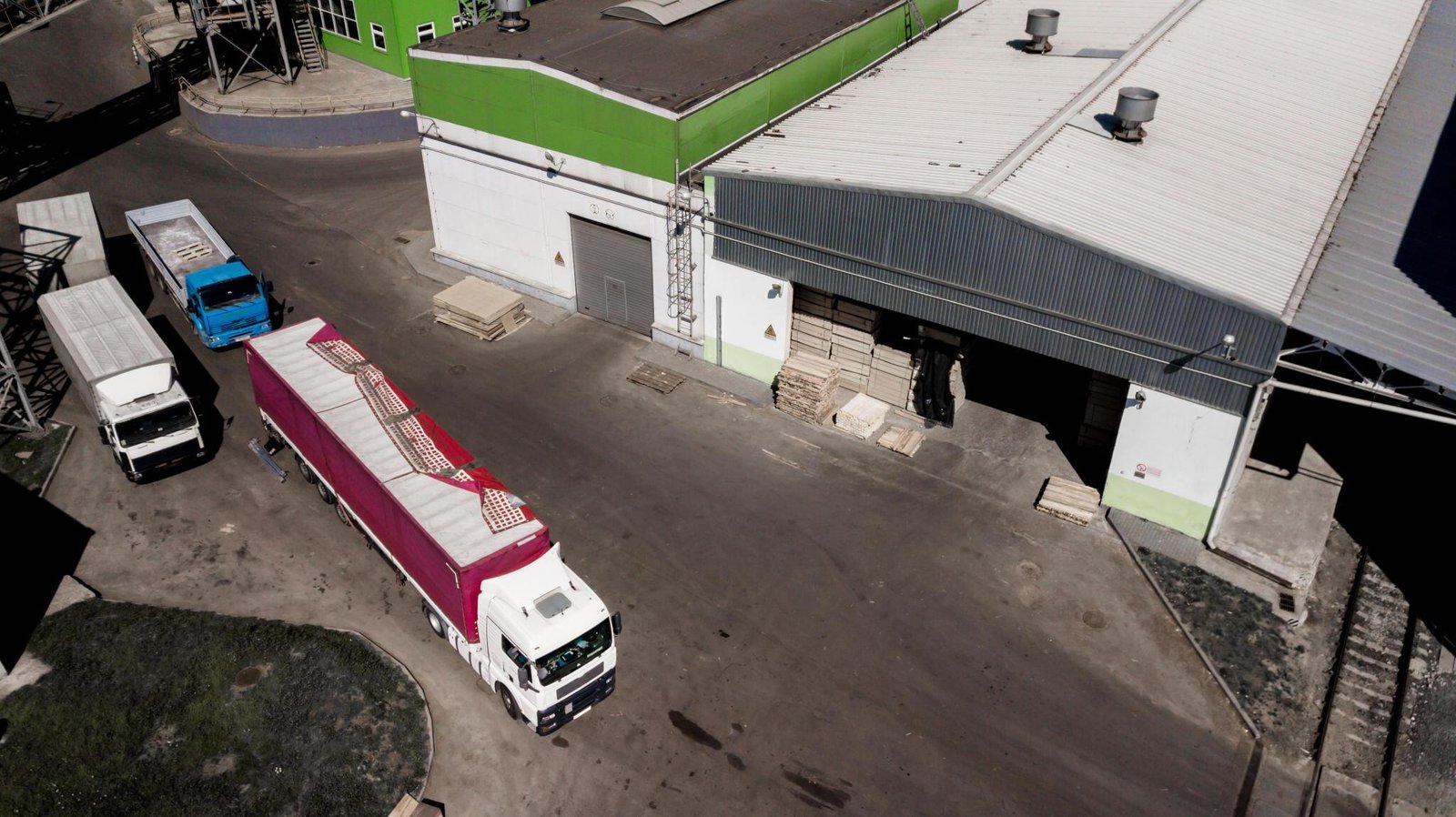
The Role of Tires in Enhancing the Touring Experience
Tires are essential to any vehicle, but their importance is especially evident in truck touring. The correct tires can significantly improve the touring experience, providing safety, comfort, and efficiency on long journeys.
- Safety: Trucks travel through different environments and weather conditions on extended excursions. High-quality tires with superior traction and durability must navigate these barriers safely. They improve control in challenging circumstances and lessen the possibility of accidents brought on by tire breakdowns.
- Comfort: Long drives are a standard part of truck tours. Tires with low noise levels and high shock absorption enhance comfortable rides. This is vital for the driver’s safety, particularly on crooked or uneven roads.
- Efficiency: Fuel efficiency is an essential concern in trucking. Modern tires are designed to reduce rolling resistance, which helps in lowering fuel consumption. This is cost-effective and environmentally friendly, reducing the carbon footprint of truck tours.
- Adaptability: Different tours may require different tire characteristics. For instance, off-road tours demand tires with deeper treads for better grip, while highway tours might benefit more from tires designed for smoother surfaces and higher speeds. The ability to choose tires specific to the tour’s requirements is a critical factor in enhancing the overall experience.
Understanding the Basics of Truck Touring
The term “truck touring,” which has gained popularity recently, describes a combination of professional truck driving and the spirit of adventure associated with touring. This article provides a basic knowledge of the concept by defining truck touring within the context of truck driving and examining its different forms.
Defining Touring in the Context of Truck Driving
Traveling goes beyond the standard boundaries of cargo transportation regarding truck driving. It takes a broader view, in which the trucker’s experience includes the voyage as a vital component. This idea of touring is about the experiences and difficulties experienced while traveling, not just about arriving at a destination.
Truck touring involves a combination of skills and attributes:
Truck touring requires a unique blend of driving expertise, logistical planning, and adaptability to navigate diverse terrains, handle various weather conditions, and ensure the safety and comfort of passengers or cargo. Successful track touring also relies on strong problem-solving abilities and the ability to provide exceptional customer service to passengers or clients.
- Endurance and expertise: Driving for extended periods demands high endurance and knowledge. To be safe and efficient, drivers must make quick decisions while navigating various terrains and weather situations.
- Appreciation of the Journey: Touring emphasizes the journey more than regular trucking. Traveling becomes a richer driver experience when they stop to enjoy the scenery, local customs, and communities.
- Flexibility: Traveling by truck necessitates flexibility. Drivers must adjust their plans to anticipate unforeseen circumstances, such as mechanical problems or road closures.
Types of Truck Tours: From Cargo Hauling to Scenic Drives
Truck tours can be grouped into various types, each offering a unique experience:
- Cargo Hauling Tours: The most common truck tours involve transporting goods long distances. These tours require careful planning for routes, schedules, and cargo safety.
- Scenic Drives: Some truckers take tours focusing on scenic drives, often along less-traveled roads. These routes are chosen for their aesthetic value and the unique driving experience they offer.
- Adventure Trucking: This journey takes you across rugged terrain, such as off-road trails or mountainous areas. It is appropriate for drivers who like excitement and adventure on their travels.
- Cultural Tours: These tours explore different cultures and communities along the route. Truckers might stop at various cultural landmarks, engage with local communities, and experience diverse lifestyles.
- Specialized Tours: Some tours, such as transporting vintage cars or unique items, are specialized. These require specific skills and knowledge about the cargo and its handling.
Critical Components of a Successful Truck Tour
Understanding the essential components of a good tour is vital for truckers, whether seasoned veterans or beginners. This includes maintaining the truck, selecting the correct tires, and using realistic navigational equipment. This post will review these topics, emphasizing their significance in ensuring a smooth and effective truck tour.
Essential Truck Maintenance for Long Tours
Regular and thorough maintenance is essential for the longevity and safety of the truck, especially before starting a long tour. Key maintenance aspects include:
- Engine Check: Regular engine checks and maintenance ensure the engine runs efficiently and reduces the risk of breakdowns. This includes checking oil, coolant, and fuel system levels.
- Brake System: The brake system must be in top condition to ensure safety, particularly in varying weather and road conditions. This includes checking brake pads, fluids, and rotors.
- Tire Inspection: Check for wear and tear, correct inflation, and tread depth. This not only provides safety but also increases fuel efficiency.
- Electrical Systems: Checking the electrical systems, which include lights, indicators, and batteries, is critical for road safety and compliance.
- Fluid Levels: Fluid levels should be checked and topped up regularly.
Selecting the Right Tires for Different Touring Conditions
Choosing the right tires is essential for any truck tour because they affect the vehicle’s performance and safety. Considerations include:
- Tread Type: The tread pattern should match the touring conditions. For example, deeper treads are better for off-road or wet conditions, while smoother treads are ideal for highway driving.
- Tire Size and Load Capacity: Ensure the tires are the correct size for the truck and capable of handling the load weight.
- Weather Conditions: Use all-weather tires for varying conditions or specialized tires for specific weather like snow or rain.
- Quality and Durability: Invest in high-quality, durable tires that withstand long distances and challenging conditions.
Navigational Tools and Techniques for Efficient Touring
Efficient navigation is essential for successful truck touring. It is more than simply following a route; it is about maximizing the experience. Essential tools and techniques include:
- GPS Systems: Modern GPS systems offer real-time traffic updates, route optimization, and alerts for weigh stations or potential hazards.
- Mapping Software: Use reliable mapping software to plan routes, including rest stops, fuel stations, and maintenance facilities.
- Mobile Apps: Many apps can provide weather updates, parking information, and fuel price comparisons.
- Traditional Navigation Skills: Despite technology developments, fundamental map reading and traffic sign reading remain essential.
- Communication Tools: Stay in touch with fellow truckers and base operations for updates and help.
Challenges and Solutions in Truck Touring
Truck touring, while exciting and rewarding, is not without its obstacles. Truck drivers must be well-prepared, from managing harsh road conditions to assuring tire durability. This article highlights frequent road issues experienced during tours and new tire solutions that can improve safety and performance in challenging circumstances.
Addressing Common Road Challenges During Tours
Truck trips can include extensive journeys across diverse and sometimes surprising terrains. Some common road issues are:
- Varying Weather Conditions: Truckers face many weather conditions, such as rain, snow, or extreme heat, requiring different driving strategies and precautions.
- Rough Terrain: Off-road trails or poorly maintained roads can present significant problems, necessitating careful navigation to avoid vehicle damage.
- Traffic Congestions and Urban Navigation: Navigating congested cities takes patience and competence, mainly when dealing with huge vehicles.
- Extended Driving Hours: Fatigue and boredom can occur after long driving, affecting attention and reaction times.
Solutions to these challenges involve a combination of skill, preparation, and technology:
- Advanced Driving Skills: Consistent training in defensive driving techniques and weather-specific driving strategies is essential.
- Pre-trip preparation: Careful route preparation, including weather forecasts and road condition updates, will help you prepare for probable problems.
- Rest and Recuperation: Take regular pauses and maintain a healthy sleep routine to combat weariness.
- Utilizing technology: Modern vehicles outfitted with robust navigation systems, weather alerts, and driver-assist technologies can help address these issues.
Innovative Tire Solutions for Tough Touring Conditions
Tires play a vital role in truck touring, especially under challenging conditions. Some innovative tire solutions include:
- All-Terrain Tires: These tires are designed to perform well on various surfaces, from highways to off-road trails, offering a balance between traction, durability, and efficiency.
- Weather-various Tires: Tires designed for winter or rainy situations have different tread patterns and rubber compounds to improve grip and safety in various weather conditions.
- Reinforced Sidewalls: Tires with reinforced sidewalls can withstand additional stress from large loads and rugged terrain, lowering the danger of blowout.
- Low Rolling Resistance Tires: These tires enhance fuel efficiency, essential for long journeys, by lowering the energy wasted as heat when the tire rolls.
- Innovative Tires: Sensors that monitor tire pressure, temperature, and tread wear provide real-time data to the driver, allowing for proactive maintenance.

Safety First: Prioritizing Well-being on the Road
In truck touring, safety is not just important; it is a necessity. The well-being of the truck driver and the assurance of a safe journey are paramount. This focus on safety involves several aspects, with tire safety being necessary. This article will discuss the importance of tire safety in truck touring and outline the best practices to ensure a safe journey.
The Importance of Tire Safety in Truck Touring
Tires are the only point of contact between a truck and the road, making their condition and performance essential for safe travel. The importance of tire safety in truck touring is multifaceted:
- Preventing Accidents: Properly maintained tires with the proper tread depth and pressure have a lower failure rate. Tire blowouts or loss of traction can cause serious accidents, particularly at high speeds or difficult driving conditions.
- Enhancing Performance: Good tires help the truck handle and stop better, essential for avoiding road hazards and emergency maneuvers.
- Load Management: Trucks often carry heavy or sensitive loads. Safe tires ensure these loads are transported without incident, avoiding potential road hazards due to shifting cargo loss.
- Fuel Efficiency: Well-maintained tires with correct inflation improve fuel efficiency, reducing the overall operating costs and environmental impact.
Best Practices for Ensuring a Safe Journey
Ensuring safety on the road involves best practices that cover various aspects of truck touring:
- Tire Inspections: Regularly check your tires’ pressure, tread depth, and overall condition. Look for evidence of wear, damage, or uneven tread wear, which may indicate an alignment problem.
- Proper Tire Selection: Select tires appropriate for the sort of tour and predicted conditions. This covers tire size, load rating, and weather-specific features.
- Adherence to Load Limits: Overloading a truck can cause excessive stress on the tires, increasing the risk of failure. Always follow the prescribed load limitations.
- Pre-Trip and Post-Trip Inspections: Conduct thorough truck inspections, including tires, before and after each tour. This helps identify and address any issues before they become hazards.
- Driver Training: Ensure drivers are trained in safe driving practices, including responding to tire-related emergencies like blowouts.
- Emergency Preparedness: Provide trucks with the required emergency tools, such as extra tires, jacks, and repair kits. Drivers should understand how to use these technologies successfully.
- Staying informed: Stay current on the latest safety requirements and tire technology. This can include attending industry workshops and training sessions and accessing the latest information and goods through platforms such as Tires Easy Truck.
Advanced Touring Techniques for Truck Drivers
To help truck drivers become experts in long-distance tours and make the most of technology, this essay delves into advanced tactics. Truck touring is both an art and a science that requires a blend of technological know-how, strategic planning, and technical proficiency, especially when traveling extensive distances.
Mastering Long-Distance Truck Tours
Long-distance truck tours present unique challenges and opportunities for truck drivers. Mastering these tours involves several vital strategies:
- Route Planning: Efficient route planning is essential. This involves selecting the shortest or fastest routes and considering road conditions, weather, traffic patterns, and truck legal restrictions.
- Load Management: Properly managing the load, including its distribution and securing, is vital for safety and efficiency. Imbalanced or unsecured loads can lead to handling difficulties and increase the risk of accidents.
- Fuel Management: Monitoring fuel consumption and strategically planning refueling stops can save time and reduce costs. Understanding the truck’s fuel efficiency and the locations of fuel stations along the route is essential.
- Rest and Fatigue Management: Long-distance tours require effective rest period management. Adhering to regulated driving hours, taking regular breaks, and ensuring quality sleep is essential for maintaining alertness and safety.
- Health and Fitness: Maintaining good physical and mental health is essential. Regular exercise, a healthy diet, and mental wellness practices can help drivers manage the rigors of long-distance tours.
Leveraging Technology for Enhanced Touring Experiences
Technology plays a significant role in modern truck touring, offering tools and systems that enhance safety, efficiency, and comfort:
- Advanced GPS Systems: GPS devices can do more than just direct users. They provide warnings for rest spots, gas stations, and repair facilities, as well as real-time traffic updates, weather reports, and route optimization.
- Fleet management and Telematics Systems: They monitor and analyze information on driver behavior, vehicle performance, fuel consumption, and maintenance requirements. This information aids in decision-making and increases productivity.
- Electronic Logging Devices (ELDs): ELDs assist in controlling driving hours and rest intervals, ensuring obedience to rules, and supporting fatigue management.
- Communication Tools: Drivers can use satellite communication systems, CB radios, and smartphones to contact dispatch centers, other drivers, and emergency services.
- Driver Assistance Technologies: Technologies like lane departure warnings, adaptive cruise control, and automatic emergency braking enhance safety on the road.
- Entertainment and Connectivity: On long tours, having access to entertainment and connectivity can improve the driver’s mental well-being. This includes satellite radio, podcasts, audiobooks, and internet connectivity.
Case Studies: Successful Touring Experiences
Success stories in truck touring are not just about arriving at the destination; they’re also about the journey, overcoming obstacles, and the vehicle’s performance—especially the tires. This essay will examine practical instances of successful truck tours and show how good tires significantly make tours enjoyable.
Real-World Examples of Effective Truck Touring
When tour firms offer their customers great experiences, well-maintained cars, and knowledgeable guides on cross-country road excursions, they effectively implement truck touring. Similarly, commercial trucking firms are skilled in effectively transporting cargo over great distances, planning routes, and guaranteeing on-time delivery with efficient truck touring techniques.
Example 1: The Cross-Country Cargo Delivery
Sensitive medical equipment was transported by trucking business from the US East Coast to the West Coast. The journey involved many terrains and weather situations. The driver used careful preparation, expert driving, and cutting-edge GPS technology to deliver the load on schedule. The trip demonstrated the value of load management, route planning, and the driver’s flexibility to adjust to changing circumstances.
Example 2: The Scenic Route Tour
Another illustration is a truck driver who decided to travel the Pacific Northwest on scenic routes. The purpose of this voyage was to experience other towns and landscapes rather than to travel quickly. Vehicle touring can combine work and the pleasure of travel, as the driver proved by managing the timetable with their desire to explore and using a vehicle designed for different terrain.
Example 3: International Trade in Goods
In this instance, a truck driver had to deal with traffic laws, language barriers, and cultural customs while transporting goods across European international boundaries. This tour’s success hinged on the driver’s knowledge of international transportation regulations, practical interpersonal skills, and familiarity with foreign driving routes.
How Quality Tires Make a Difference in Touring
In each of these examples, the role of quality tires was paramount:
- Durability and Reliability: Quality tires withstand long distances and harsh conditions without significant wear, reducing the risk of tire-related delays or accidents.
- Adaptability to Conditions: Tires capable of handling diverse weather conditions and terrains were essential for cross-country delivery. All-terrain and weather-specific tires ensured safe and efficient travel across different regions.
- Fuel Efficiency: In the scenic route tour, tires with low rolling resistance helped manage fuel costs, an essential factor in long, leisurely tours.
- Load Handling: In international goods transport, heavy-duty tires designed to handle different load weights and sizes ensure the truck can carry diverse types of cargo safely.
- Safety: In all cases, the enhanced grip, traction, and stability offered by high-quality tires contributed to safer driving experiences, especially in emergencies or challenging driving conditions.
Future of Truck Touring: Trends and Predictions
Due to changing industry dynamics and technology breakthroughs, the truck touring sector is expected to undergo significant changes. This essay examines the new directions in truck touring and how cutting-edge tire technology will influence trips in the future.
Emerging Trends in Truck Touring
Innovative technologies for route planning and passenger involvement, customized tour experiences, and eco-friendly and sustainable practices are some of the emerging trends in truck touring. With the least negative influence on the environment, these trends seek to improve the tourist experience overall.
- A Greater Focus on Sustainability: The move toward sustainability is one of the most noticeable developments. Lesseningils are developing more tive routing, investigating alternative fuels like electric or hydrogen-powered engines, and utilizing trucks with reduced emissions to lessen carbon footprints.
- Technological Integration: The way trucking is conducted is changing due to the inclusion of cutting-edge technologies. These include modern fleet management software and automated driving systems, improving safety, efficiency, and data-driven decision-making.
- Comfort and Well-Being of the Driver: The health and welfare of truck drivers are receiving more attention. This includes improved sleep and rest areas, wearable health monitoring technology, and ergonomic vehicle cabin designs.
- Tailored Touring Experiences: As truck tours become increasingly customized, drivers’ interests and requirements are considered. This could refer to trips that highlight particular kinds of freight movement, cultural events, or picturesque routes.
- Enhanced Connectivity: Thanks to the Internet of Things (IoT) and other communication technologies, drivers can more easily stay in touch with their families, bases, and emergency services. This enhances connectivity and boosts operational effectiveness and safety.
The Role of Innovative Tire Technology in Future Tours
Innovative tire technology will benefit future truck tours by providing safer and more comfortable travel. Tours will be smoother and more pleasurable with self-sealing tires, traction control systems, and tire pressure monitoring systems (TPMS) that increase traction, decrease downtime, and boost reliability.
- Smart Tire Technologies: The future of tire technology lies in developing intelligent tires equipped with sensors. These sensors can provide real-time data on tire pressure, temperature, and tread wear, allowing for maintenance and ensuring proper tire performance.
- Eco-Friendly tires: With the increasing emphasis on sustainability, there will be a rise in the production of eco-friendly tires. These tires are built of sustainable materials and have a low rolling resistance to improve fuel efficiency.
- Advanced Wearable Technologies: Wearable tire technologies that adapt to various road and weather conditions are anticipated to expand. These might include tires that improve performance and safety by changing their tread patterns in response to the weather or the driving surface.
- Enhanced Durability and Efficiency: Upcoming tire innovations will probably concentrate on extending tire life and durability to minimize the need for regular replacements. This helps to meet environmental objectives while also cutting expenses.
- Integration with Autonomous Vehicles: As autonomous trucks become more prevalent, tires will be designed to complement these systems, offering excellent stability, handling, and feedback to the vehicle’s AI systems.

Conclusion & Recommendations
As we conclude this detailed exploration into truck touring, we must reflect on the key insights and learnings that have emerged. This journey has taken us through various stages of truck touring, from the basic understanding of touring concepts to the advanced techniques and future trends in the industry. Here, we’ll summarize these insights and offer final thoughts and recommendations for truck tourers.
Summarizing Key Insights and Learnings
The truck touring sector is a broad and dynamic one that combines technology, expertise, and passion. As trucking has developed into a touring industry, it has created new opportunities for adventure and discovery while highlighting the significance of efficiency, sustainability, and safety. Important lessons from our investigation include:
- Planning and preparing well for tours is essential, including load management, route planning, and rest periods.
- Tire safety and routine maintenance are essential to ensure secure travel.
- Touring experiences can be improved by utilizing technology for navigation and vehicle control.
- Integrating eco-friendly measures and sustainability in truck touring is becoming increasingly important.
Final Thoughts and Recommendations for Truck Tourers
For those embarking on truck touring, whether seasoned professionals or newcomers, the following recommendations are key:
- Embrace Continuous Learning: Stay updated with the latest trends, regulations, and technologies in the trucking industry. Continuous learning and adaptation are crucial in this ever-evolving field.
- Prioritize Safety: Always put safety first. This includes regular vehicle maintenance, obeying driving regulations, and investing in high-quality equipment, especially tires.
- Invest in Quality Tires: Given the critical role tires play in truck touring, it is essential to invest in high-quality, durable, and the right tires for your specific touring needs.
- Balance Efficiency with Enjoyment: While operation efficiency is essential, remember to enjoy the journey. Truck touring offers unique experiences – embrace them.
- Be Environmentally Conscious: Where possible, adopt practices that reduce environmental impact. This includes using eco-friendly tires and embracing fuel-efficient driving practices.
As you continue your journey in truck touring, remember that the right equipment and knowledge are critical to a successful and enjoyable experience. This is where Tires Easy Truck steps in. With a wide range of quality tires suited for different touring conditions and needs, Tires Easy Truck is your go-to source for reliable, durable, and high-performance tires.
Explore our collection and find the perfect tires for your next adventure. Click here to start your journey with the best tires on the road. Visit Tires Easy Truck
The road ahead for truck touring is exciting and full of possibilities. With the right approach and tools, you’re set for a journey that’s not just about reaching destinations but creating memorable experiences. Stay safe, stay informed, and most importantly, enjoy the ride!
FAQs
What is a tour in transportation?
In transportation, a tour refers to a journey, often involving long distances, focusing on the experience of travel rather than just reaching a destination. It’s common in trucking, where drivers embark on extended trips, sometimes through scenic or varied routes, blending work and adventure.
What are touring tires?
Touring tires are designed for passenger vehicles and trucks used for long-distance travel. They prioritize comfort, a smooth ride, and durability. These tires typically offer balanced performance in wet and dry conditions, lower noise levels, and improved fuel efficiency, making them appropriate for long road trips.
What are Touring Truck Tires?
Specialized tires made for long-distance trucking are called touring truck tires. Their main goals are durability, increased fuel efficiency, and a comfortable ride. These tires are perfect for truck drivers who spend much time on the road since they are designed to withstand prolonged highway driving and balance comfort and performance.
How do Touring Truck Tires Differ from Regular Truck Tires?
Touring truck tires differ primarily from regular tires’ design and functionality. They are optimized for smooth, quiet rides and long tread life and are ideal for highway and extended driving. In contrast, regular truck tires may prioritize ruggedness and grip for various terrains, which might compromise ride comfort and noise levels.
Are Touring Truck Tires Suitable for All Weather Conditions?
Touring truck tires are generally designed for all-season use, performing well in various weather conditions. However, specialized winter tires are recommended for better traction and safety in extreme weather, such as heavy snow or ice. Choosing tires that match the specific driving conditions and climate you anticipate encountering is essential.
What are the different types of truck tires?
Truck tires come in various types, each designed for specific purposes: Highway tires for long-distance road travel, All-Terrain tires for varied road surfaces, Mud tires for off-road conditions, Winter tires for snowy and icy roads, and All-Season tires as a versatile option for various but moderate conditions.
Are touring tires more comfortable?
Yes, touring tires are generally more comfortable. They are engineered to provide a smoother and quieter ride, effectively absorbing road irregularities. This feature, along with their design focusing on long-distance travel, makes them a preferred choice for comfort-oriented drivers.
What is a winter touring tire?
A winter touring tire is a specialized tire designed for cold weather conditions. It combines the comfort and efficiency of a touring tire with enhanced features like deeper treads and unique rubber compounds. These modifications provide better traction, stability, and control on snow and ice, making them ideal for winter travel.







